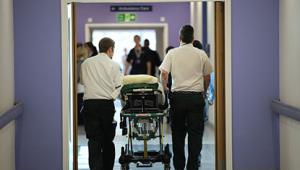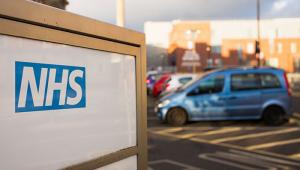Setting out the General Practice Forward View today, chief executive Simon Stevens said the plan would improve patient care and access by increasing the number of family doctors, as well as investing in new ways to provide primary care.
The plan has been developed with Health Education England and in discussion with the Royal College of GPs, and is intended to lead to an extra 5,000 GP posts in the next five years.
Overall, spending on general practice will rise from £9.6bn in 2016/17 to over £12bn in 2020/21. This will come from the additional funding pledged by ministers for the NHS, while there will also be a £500m national “turnaround” package to support struggling surgeries.
Stevens said that GPs are by far the largest branch of British medicine, and if general practice fails, the whole NHS fails.
“If anyone ten years ago had said: ‘Here’s what the NHS should now do – cut the share of funding for primary care and grow the number of hospital specialists three times faster than GPs’, they’d have been laughed out of court,” Stevens said.
“But looking back over a decade, that’s exactly what’s happened. Which is why it’s no great surprise that a recent international survey revealed British GPs are under far greater pressure than their counterparts, with rising workload matched by growing patient concerns about convenient access. So rather than ignore these real pressures, the NHS has at last begun openly acknowledging them. Now we need to act, and this plan sets out exactly how.”
As well as increasing the number of GPs at twice the rate of the last decade, the plan will also make it easier for individual practices to form into federations and super-partnerships. There will also be more direct funding for improved in hours and out-of-hours access, including clinical hubs centred round surgeries. A new voluntary GP contract will also be rolled out in order to better integrate primary and community health services.
Arvind Madan, NHS England’s director of primary care and a GP in Tower Hamlets in London, said he is “acutely aware” of the pressures GPs are facing right now, highlighting the need to get back on track as quickly as possible.
“This means that practices, working together, will benefit from access to support if they are struggling to meet patient’s needs, reductions in unnecessary workload, more opportunities to recruit staff and a chance to improve use of their technology or premises,” Madan added.
Responding to the plan, Johnny Marshall, policy director at the NHS Confederation, said the roadmap represents an important step forward for the entire health and care system.
“Closer working between primary and community care in partnership with the rest of the health and care system holds the key to addressing the needs of the population and relieving pressures most intensely felt by our acute trust members,” Marshall stated.
“We have previously highlighted the need to recognise the wider primary care workforce so we are pleased to see the commitment to develop a breadth of existing and new roles that meet the needs of the practices' registered population.”












